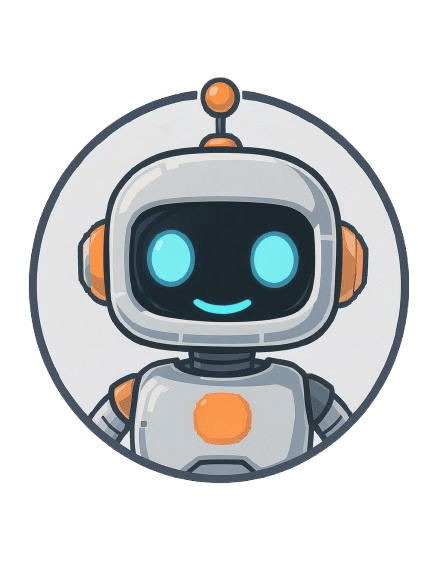
The Beginner's AI Security Guide: What's Safe to Share, What Isn't (2025)
Estimated read time: 8 minutes
🦺 How to stay safe while using ChatGPT, Claude and other AI tools
Sarah from HR discovered something brilliant last month: ChatGPT could write her weekly team updates in 5 minutes instead of an hour. Three weeks later, she realised she'd been including employee names, project codes, and budget figures in every single prompt.
Plot twist: She's probably fine. Most AI security "disasters" aren't actually disasters, and the fixes are simpler than you think.
But here's what's mental: research from Trend Micro shows that 93% of security leaders are panicking about AI attacks in 2025, while most of us are just trying to figure out if asking ChatGPT to "make this email sound less passive-aggressive" will somehow end up on the evening news.
This guide cuts through the fear-mongering with three simple rules that keep you safe without turning you into a paranoid hermit. Plus the one question that sorts 90% of AI security decisions in under 10 seconds.
If you're completely new to AI tools, start with our What is AI guide to understand the basics before diving into security.

🗞 Why You Should Actually Use AI (Despite the Scary Headlines)
Before we dive into the "don't do this" list, let's get one thing straight: AI tools are bloody brilliant when used properly.
Real benefits that beginners are missing:
Cut email writing time by 70% (without sounding like a robot)
Turn complex documents into simple summaries in seconds
Get unstuck on creative projects when your brain goes blank
Learn new skills without paying for expensive courses

The reality check: The people panicking loudest about AI security are often the ones missing out on these massive productivity gains. Meanwhile, smart users have learned three simple rules that let them use AI confidently every day.
Think of AI privacy like internet dating - you don't share your home address in the first chat, but you don't hide in your house forever either.
🌟 The 3-Rule System That Keeps 99% of People Safe
Forget complicated privacy policies and legal jargon. Most AI security comes down to common sense applied consistently.
🍺 Rule 1: The Pub Test
The rule: Would you discuss this information loudly in a busy pub where your worst enemy might overhear?
If yes: Generally safe to share with AI If no: Keep it to yourself
This handles 80% of decisions instantly.
Examples that pass the Pub Test:
"Help me write a professional email declining this meeting"
"Explain blockchain like I'm 5 years old"
"Give me ideas for team building activities"
"Make this presentation outline more engaging"

Examples that fail spectacularly:
"Review this budget spreadsheet for Client X"
"Help me respond to this complaint about the Johnson project"
"Fix this code that processes customer payments"
📽 Pro tip: The Pub Test works because it forces you to think about context. You'd happily discuss general work challenges in a pub, but you wouldn't wave around confidential client documents.
🔍 Rule 2: The Name Game
The rule: If it has a real name (person, company, project, location), remove it before sharing.
Why this matters: AI systems are brilliant at connecting dots. Share enough specific details, and they can piece together information you never meant to reveal.
The smart approach:
❌ Don't do this: "Help me write a proposal for Johnson & Associates about their Manchester office relocation project"
✅ Do this instead: "Help me write a proposal for a corporate client about their office relocation project"
❌ Don't do this: "I'm stressed about my boss Sarah who keeps micromanaging the Henderson account"
✅ Do this instead: "I'm stressed about my boss who keeps micromanaging our biggest client"
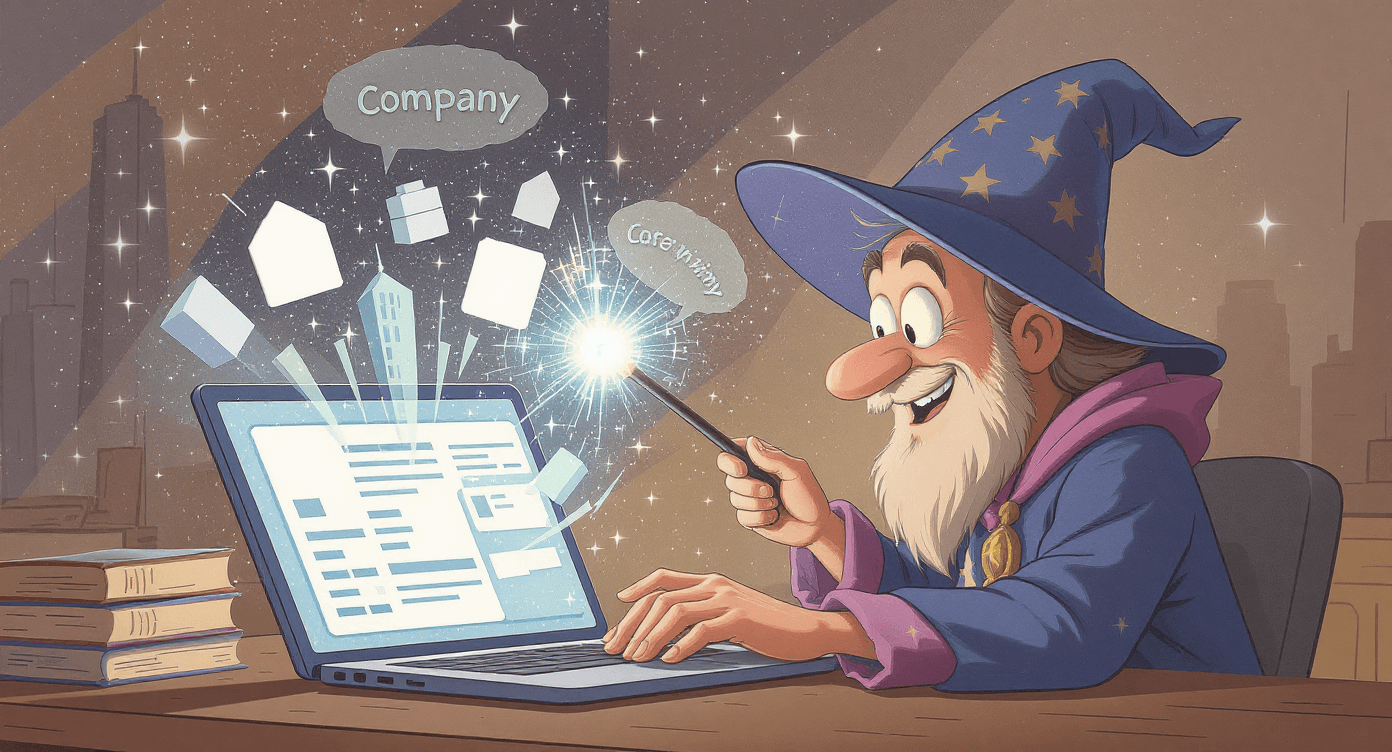
The magic happens when you realise: Most AI advice works just as well with anonymized information. You get the same quality help without the privacy risk.
Exception that proves the rule: Using famous people's names is usually fine ("Write like David Attenborough" or "Explain this like Gordon Ramsay would") because that information is already public.
🛠️ Rule 3: The Tool Test
The rule: Choose AI tools based on what they do with your data, not how clever they sound.
The brutal truth: Free AI tools make money by using your conversations to train better AI systems. Your data is literally the product being sold.
Your three options:
Option 1: Free and Careful Use free tools for general advice and public information only. Accept that everything you share helps train their systems.
Option 2: Paid and Protected Upgrade to paid versions that exclude your data from training. Usually costs £15-30/month but gives you much better privacy protection.
Option 3: Temporary and Smart Use "temporary chat" or "incognito" modes when available. These typically delete conversations after 30 days and don't use them for training.
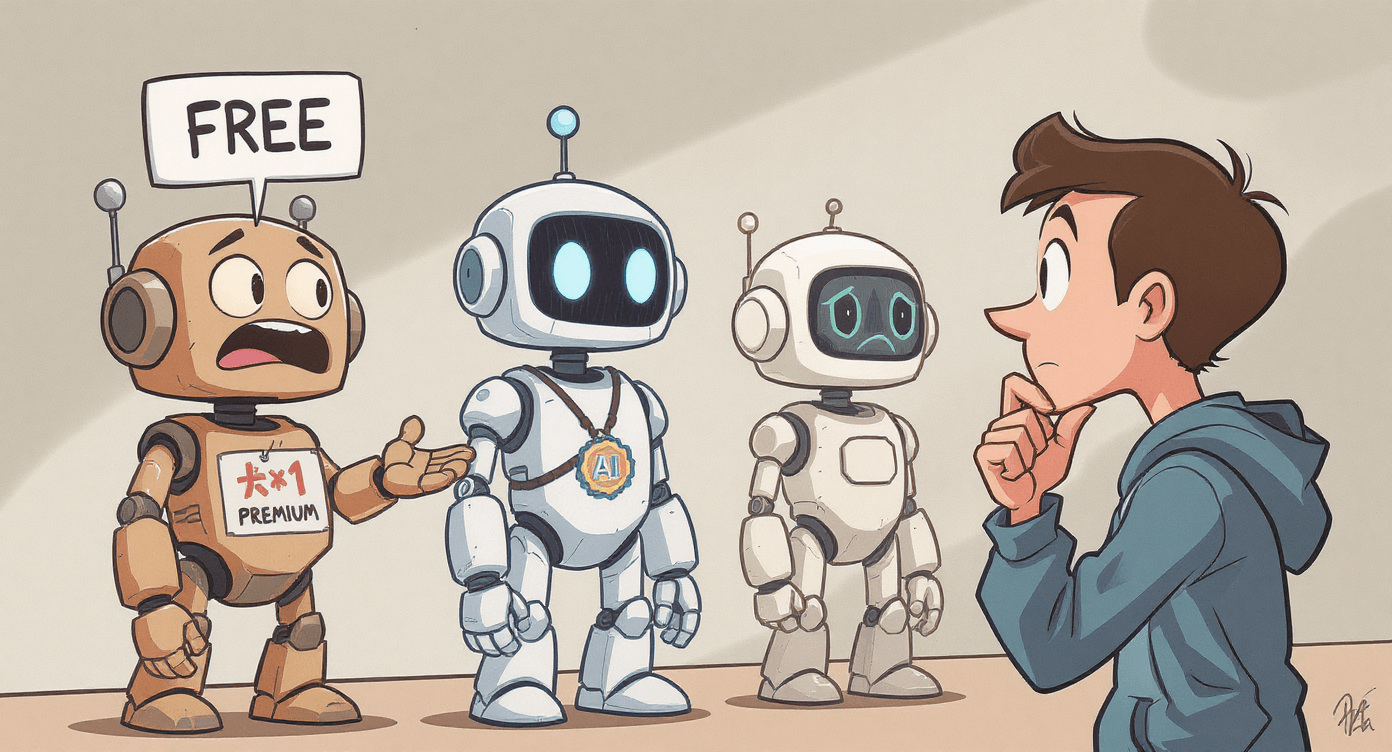
Quick tool comparison for beginners:
ChatGPT: Free version uses everything for training (you can opt out). Paid version (£19.99/month) excludes your data. Has temporary chat mode.
Claude: Doesn't use your data for training by default. Automatically deletes conversations after 30 days. Good choice for privacy-conscious beginners.
Google Gemini: Complex privacy settings tied to your Google account. Probably best avoided if privacy is a major concern.
The bottom line: If you're sharing anything remotely sensitive, either pay for privacy protection or use a tool like Claude that protects you by default.
🧠 Quick Fact: Free AI tools use your conversations as training data... paying £15/month typically excludes your information from AI development.
🚫 Personal Stuff: What Never Goes Near AI
Some information is just too risky to share, no matter how much you trust the AI tool. Here's the "absolutely not" list:
Health information: Symptoms, medications, doctor visits, mental health concerns. Even asking "I have condition X, what should I know?" creates a permanent record linked to your account.
Financial details: Bank information, salary figures, debt amounts, investment details. AI companies have been hacked before, and this information never becomes less valuable to criminals.
Legal problems: Court cases, disputes, immigration issues, anything involving lawyers. This stuff can follow you for decades.
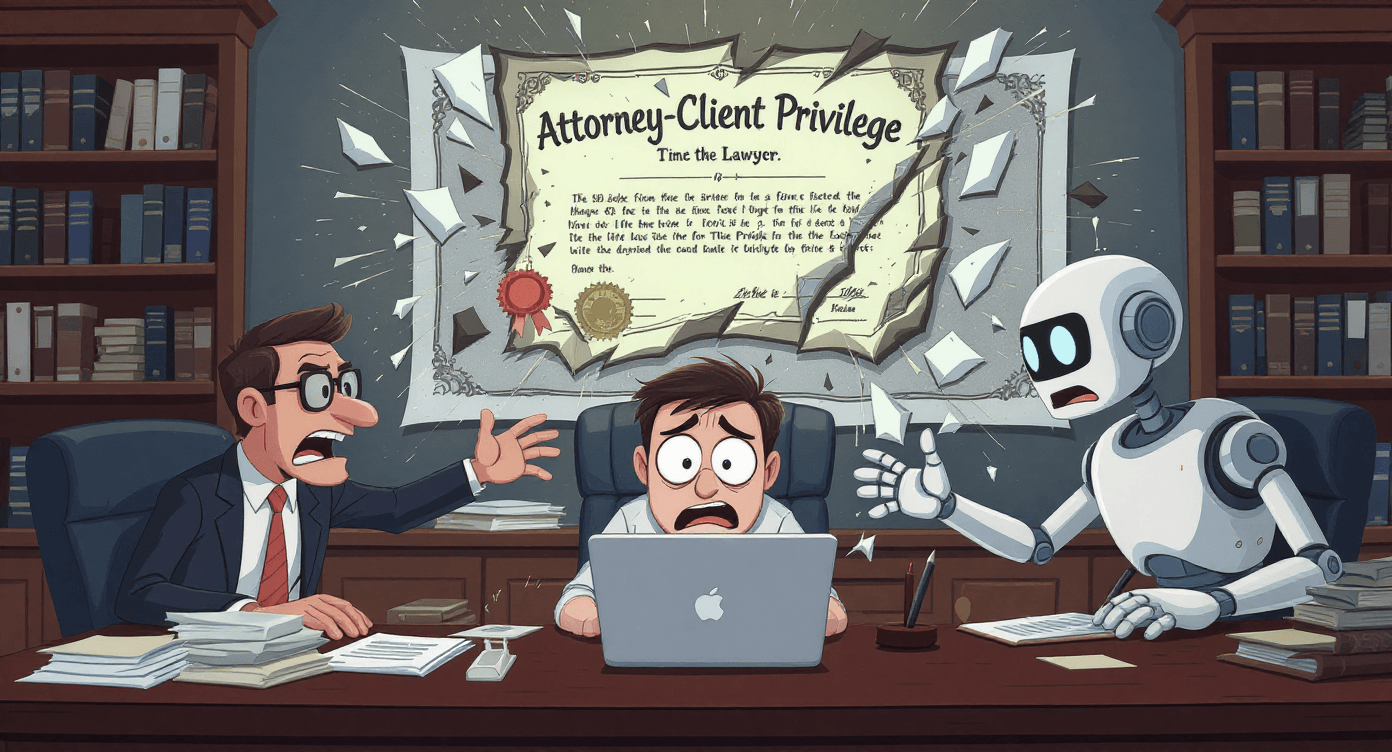
Relationship drama: Real names combined with personal conflicts create permanent records that could be embarrassing or damaging later.
Location patterns: Your daily routine, where you live/work, travel plans. Combining this information makes you predictable to bad actors.
The smart alternative: You can still get helpful advice by asking general questions like "How do people typically handle workplace stress?" instead of "My boss Sarah is making my life hell at Johnson Corp."
For more guidance on using AI responsibly in all areas of life, check out our complete AI Ethics guide.
🧠 Quick fact: Most AI privacy breaches happen from user oversharing, not hacking - 73% of data exposure comes from inappropriate information sharing.
💼 Work Stuff: The Office Survival Guide
Most workplace AI disasters happen because people treat these tools like internal company systems. They're not. They're external services that happen to be really helpful.

🤖 The Safe Zone for Work AI
Generally fine to share:
Industry trends and general business concepts
Template requests for common business documents
Explanation of public methodologies or frameworks
General advice about workplace situations
Examples of safe work prompts:
"Create a template for quarterly review meetings"
"Explain agile methodology in simple terms"
"What are best practices for client on-boarding?"
"Help me structure a presentation about project management"
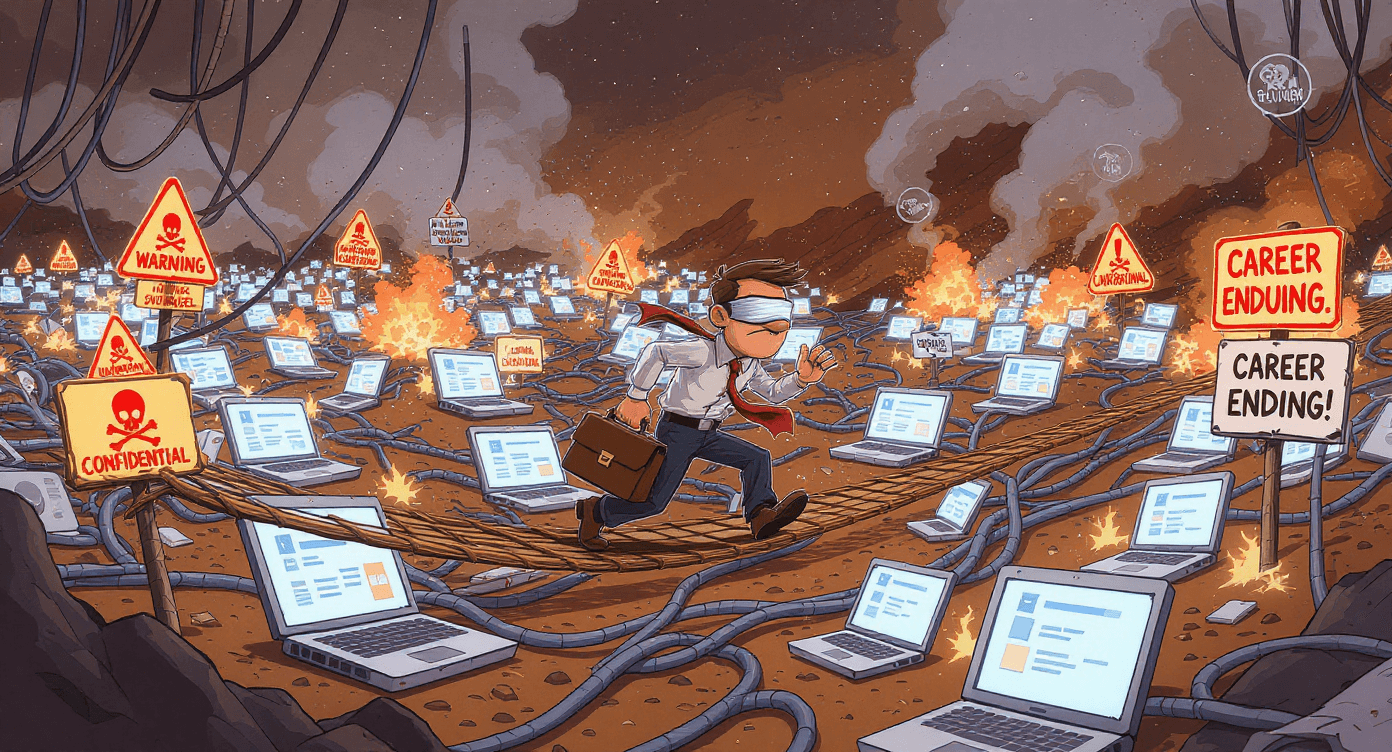
☢ The Danger Zone (Career-Limiting Moves)
Never share these at work:
Client names or project details
Financial information or pricing strategies
Proprietary processes or trade secrets
Internal conflict or personnel issues
Competitive intelligence or strategic plans
Real story: A marketing manager at a consultancy uploaded a "confidential strategy document" to get AI help with formatting. Six months later, a competitor's proposal included suspiciously similar recommendations. Coincidence? Maybe. Career damage? Definitely.
📱The Samsung Reality Check
You've probably heard about Samsung employees sharing sensitive code with ChatGPT. Here's what actually happened and why it matters:
The mistake: Three different employees shared proprietary source code, meeting notes, and technical specifications through ChatGPT, thinking it was just a helpful tool.
The consequence: That information potentially became part of ChatGPT's training data, meaning future versions might generate similar code for competitors.
The lesson: It wasn't malicious - it was people using a external tool for internal work without understanding the implications.
How to avoid being the next Samsung: Treat AI tools like you're talking to a helpful stranger in a coffee shop. You might ask for general advice, but you wouldn't show them your company's internal documents.
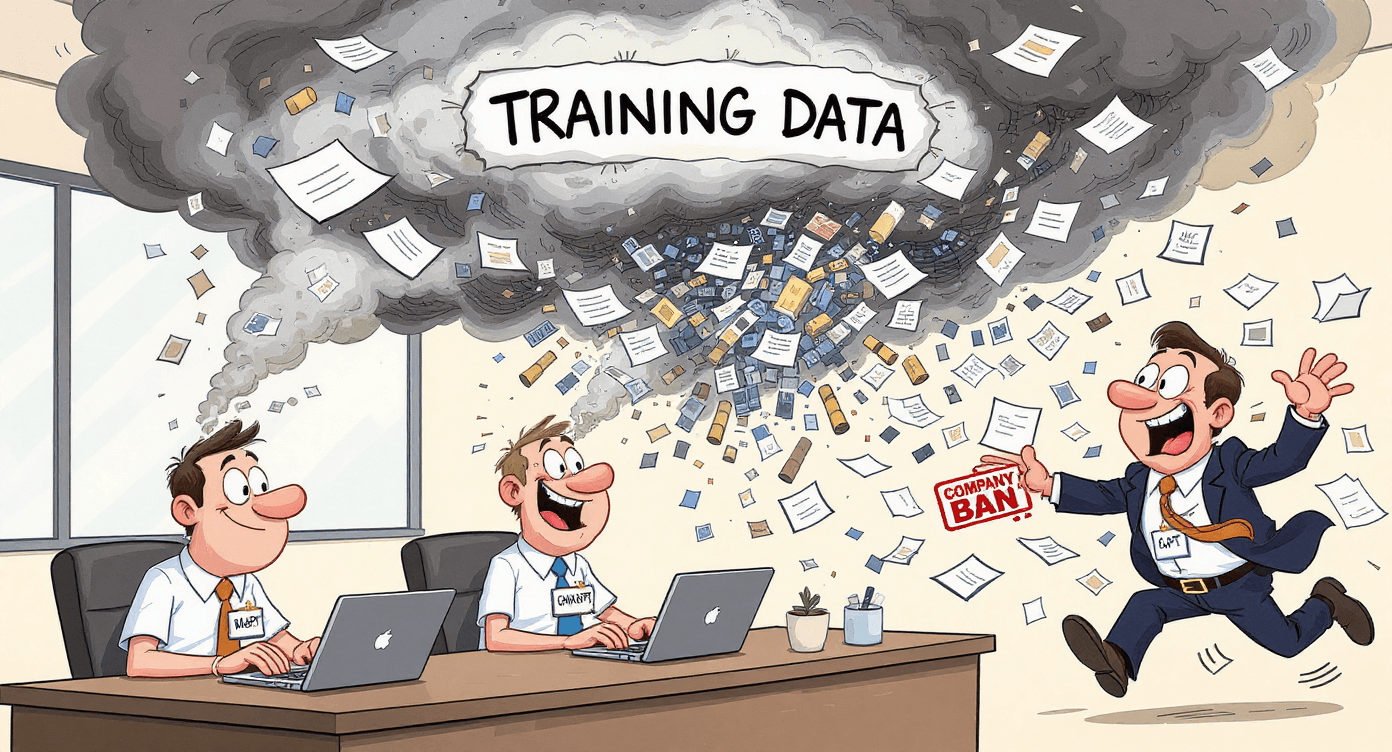
🆘 The "Oh Crap, I Think I Messed Up" Recovery Plan
Made a mistake? Don't panic. Here's your damage control checklist:
Immediate actions (do these now):
Delete the conversation - Most tools let you delete individual chats from your history
Check your settings - Turn off data training if you haven't already
Change passwords - If you shared any login information (you shouldn't have, but people do)

This week:
Audit your recent conversations - Look for anything with real names or sensitive details
Enable privacy settings - Most tools have options to limit data use
Choose your tools - Pick 1-2 AI tools with good privacy practices instead of trying everything
This month:
Separate work and personal - Use different accounts/tools for different types of requests
Regular cleanup - Set a monthly reminder to delete old conversations
Build better habits - Practice the 3-rule system until it becomes automatic
The reassuring truth: Unless you shared passwords, financial information, or genuinely confidential business secrets, you're probably fine. Most "privacy disasters" are more about embarrassment than actual harm.
🛒 Choosing Your AI Tools: The Beginner's Buying Guide
Not all AI tools are created equal when it comes to privacy. Here's how to choose without needing a computer science degree:
❓The Questions That Matter
How long do they keep my data?
Good answer: "30 days" or "until you delete it"
Bad answer: "As long as necessary" or vague legal language
Do they use my conversations to train AI?
Good answer: "No" or "Only if you opt in"
Bad answer: "Yes, but we anonymize it" (they can't really anonymize conversational data)
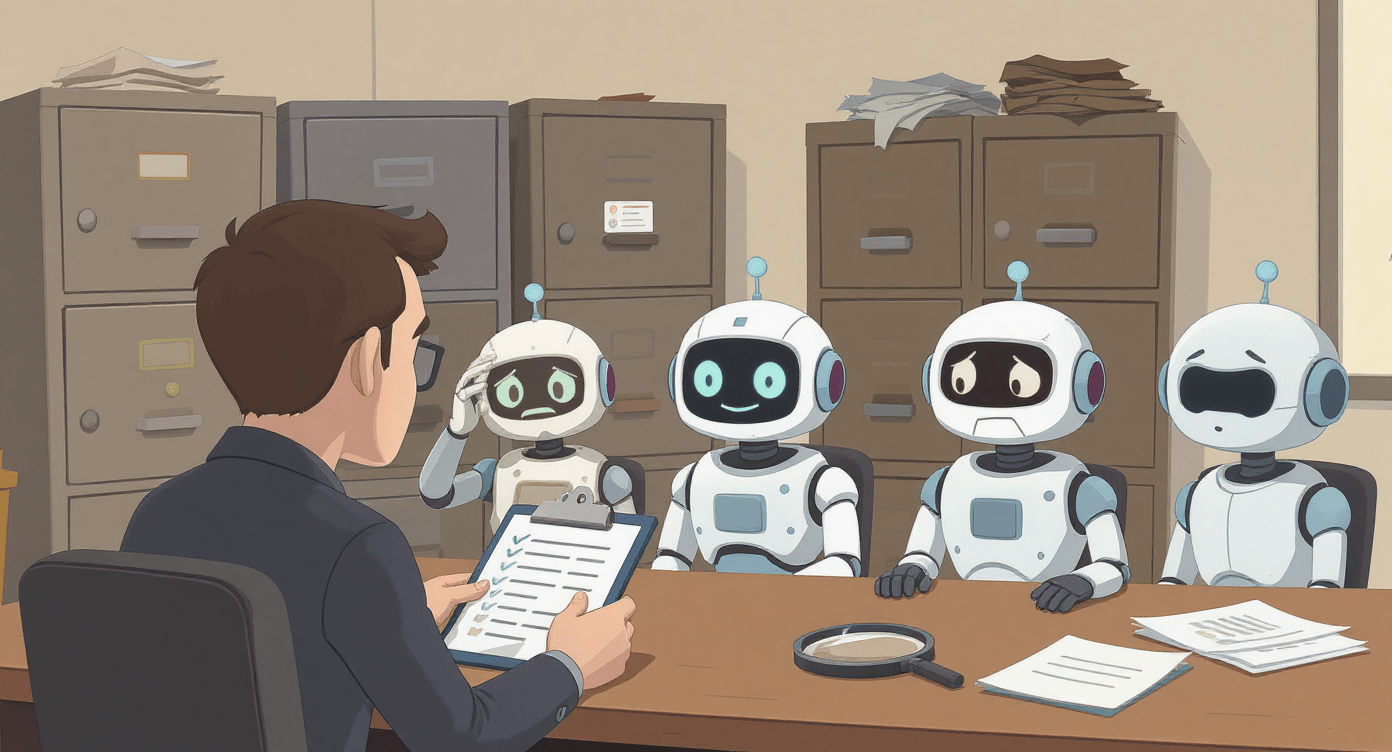
Can I delete my data?
Good answer: "Yes, immediately" with clear instructions
Bad answer: Complex processes or "we'll consider your request"
What happens if they get hacked?
Good answer: Clear breach notification policies and security measures
Bad answer: Nothing mentioned or vague promises
🎉 The Beginner-Friendly Options
For maximum privacy: Claude
Doesn't use your data for training by default
Automatically deletes conversations after 30 days
Clear, simple privacy policy
Good for sensitive conversations
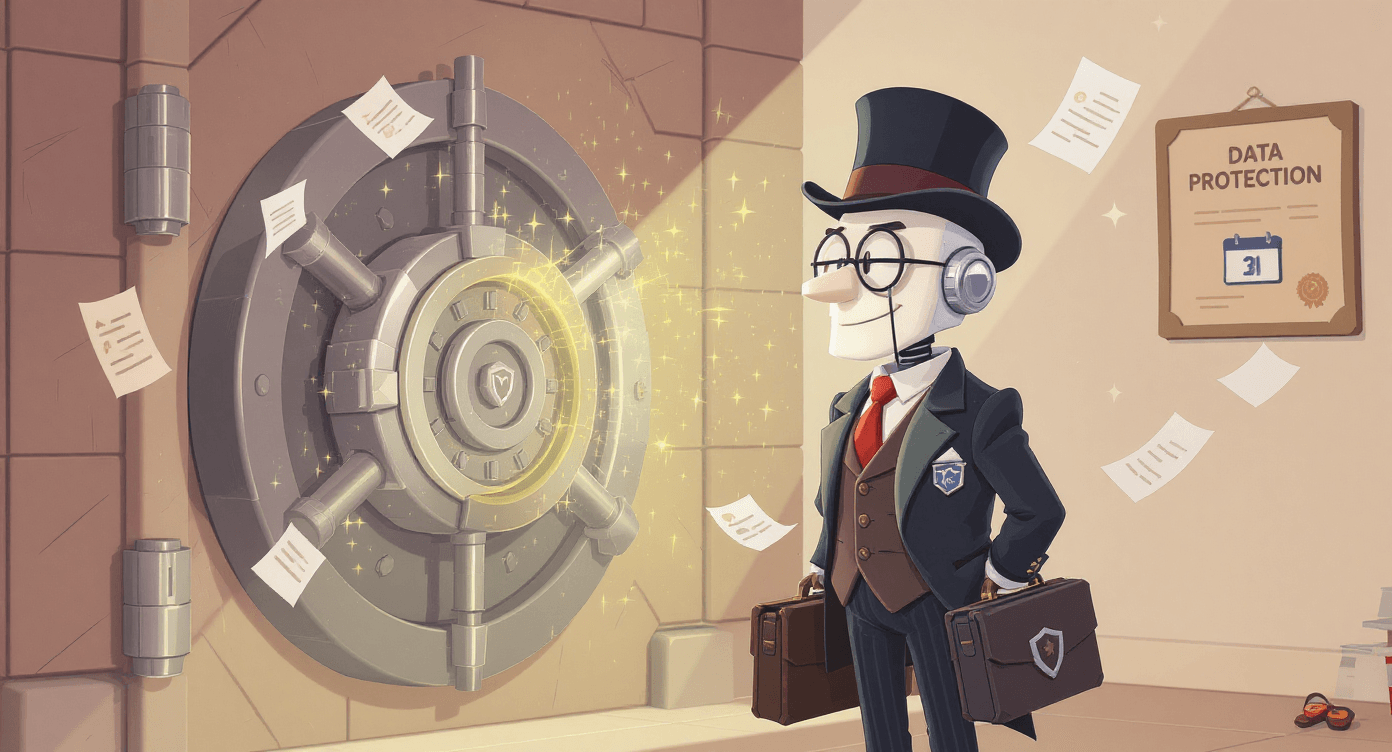
For general use: ChatGPT Plus (£19.99/month)
Paid version excludes your data from training
Has temporary chat mode for extra privacy
Most features and capabilities
Worth paying for if you use AI regularly
For Google users: Be careful with Gemini
Tied to your Google account and data
Complex privacy settings
Better for public information only
Free options: Use with caution
Assume everything is used for training
Only share information you'd post publicly
Great for learning and general advice
Not suitable for anything personal or work-related
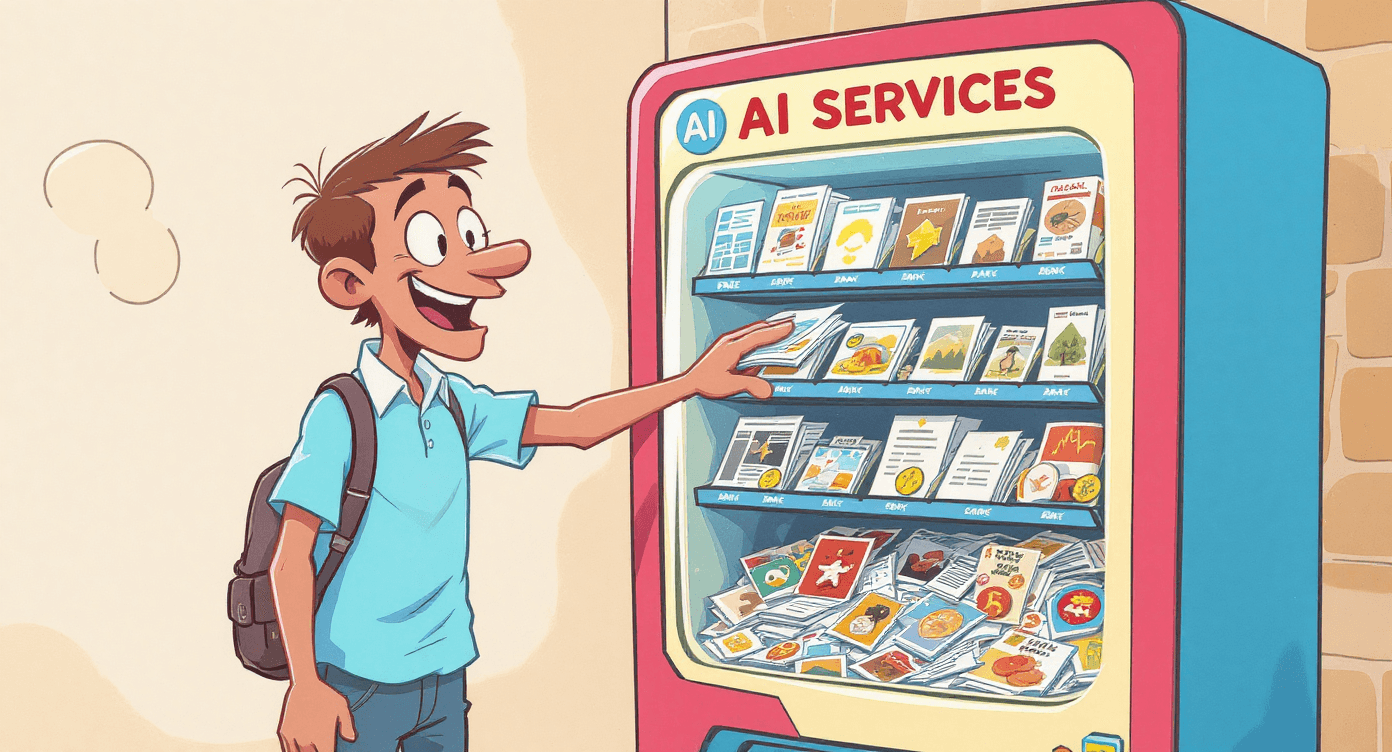
💥 The "Enterprise" Reality
Many AI tools offer "Enterprise" or "Business" versions with better privacy. These usually:
Exclude your data from training automatically
Provide better security and compliance
Cost more but offer legal protections
Worth considering if you're using AI for work regularly
If your company hasn't provided approved AI tools yet, push for proper enterprise accounts instead of everyone using free personal accounts.
To avoid the most common pitfalls entirely, read our guide on 5 Common Mistakes Beginners Make with AI tools.
🔐 Your Simple AI Security Routine
The goal isn't perfect security - it's good enough security that becomes automatic. Here's your monthly 10-minute routine:
Monthly AI security check (literally takes 10 minutes):
Review conversations - Scan your recent AI chats for anything too specific or sensitive
Delete risky stuff - Better safe than sorry
Check privacy settings - Make sure training data use is still turned off
Update your approach - Notice what types of requests work well vs. feel risky

The 10-second decision framework: Before every AI conversation, ask: "Would I be comfortable if this appeared in tomorrow's newspaper with my name on it?"
If yes: Go ahead If no: Either anonymize it heavily or don't share it
Building the habit: The first few weeks require conscious thought. After that, the Pub Test and Name Game become automatic, and you'll naturally start asking better questions that get great results without privacy risks.
Want AI to sound less robotic and more like you? Prompt like a Pro shows you how.
🗝 The Real Secret: It's Not That Complicated
Here's what the "experts" don't want you to know: AI security for normal people isn't rocket science. It's just applied common sense.
The truth about AI privacy: 90% of protection comes from following three simple rules consistently. The remaining 10% is technical stuff that only matters if you're handling state secrets or medical records.
The truth about the risks: Most AI privacy "disasters" are embarrassing rather than devastating. Yes, be careful with sensitive information, but don't let fear of perfect privacy prevent you from gaining massive productivity benefits.

The truth about getting started: You can begin using AI tools safely today with the knowledge in this guide. You don't need to understand blockchain, read 50-page privacy policies, or become a cyber security expert.
The opportunity most people miss: While others are paralysed by privacy fears, you can be gaining hours of productivity daily by using AI tools intelligently and safely.
The future belongs to people who master AI early while protecting what matters. That's not complicated - it's just smart.
What AI companies don't tell you is that "anonymized" data often includes 99 data points about you—Netflix was famously able to re-identify users from just their viewing patterns and timestamps.
For more practical AI guidance, explore our guides on 7 Beginner-Friendly AI Tools and learn about the tools you'll encounter on your journey.
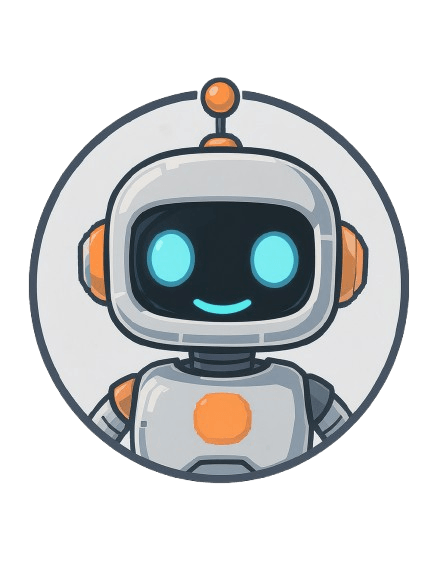
Simplify AI
Making AI make sense -- one prompt at a time
Declaration
Some links on this site are affiliate links.
I may earn a small commission, but it doesn't
cost you anything extra.
I only recommend tools i trust
Thank you for your support
Socials
Location
Based in Mansfield, Nottinghamshire
Simplifying AI for beginners, no matter
where you're starting from.
All Rights Reserved.